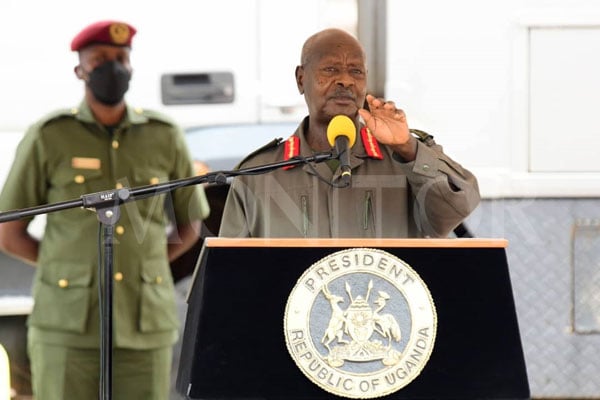Prime
Uganda @60: Independence lies in our past

Philip Matogo
What you need to know:
‘‘We have tried federalism, one-party democracy, no-party democracy and now, multiparty democracy”
The story of Uganda’s independence recalls the fable of the sparrow and the eagle. Specifically, a sparrow was flying above sheep. Then, the sparrow saw a great eagle swoop down and carry off one sheep with its mighty claws.
The sparrow then clapped its wings and declared, “I will do the same.” Thus, the sparrow flew downwards from the sky and landed on the back of a fat ram.
The male sheep had thick wool that was tangled in a thick mass because of lying in dung.
As soon as the sparrow landed on the sheep’s back, it clapped its wings and would have flown away, but its feet became tangled in the sheep’s wool and the sparrow could not free itself.
All this happened as the shepherd looked on, having seen as well what happened with the eagle as with the sparrow.
So, the shepherd came up to the sparrow in a rage and seized it. Then the shepherd plucked out the sparrow’s wing-feathers and, tying the sparrow’s feet with a twine, carried it to his children and threw the sparrow to them.
“What is this?” asked the shepherd’s children.
The shepherd answered, “This is one that aped a greater than himself and came to grief.”
Ever since we attained independence on October 9, 1962, we have aped political systems which we have deemed to be successful or superior to our own. And, every time, this has come to grief.
We have tried federalism, albeit to a limited degree, one-party democracy, no-party democracy and now, multiparty democracy. Each political experiment has resulted in the same result.
Yet the true solution to our problems of governance lies in pre-colonial Uganda, when politics related to the type of economic systems practised.
The Benet, who live in the north-eastern part of Uganda and Batwa (or Twa), who live primarily in the south-western region of Uganda, practised a form of primitive communism.
The rest of Uganda’s pre-colonial systems fell in three broad systems: large centralised kingdoms; centralised mid-sized kingdoms; and decentralised, segmentary or acephalous societies characterised by scattered and largely autonomous chiefdoms.
Political identities were generally more related to affiliations, such as sharing a common language, than being of a particular territory.
Instead of studying these political societies and seeing how they could be tailored to suit our pursuit of nationhood, we have shunned them.
To study these societies, however, requires an understanding of the state, which should not be confused or conflated with the balance of powers in society which find expression in government.
Governments may change the polities, rules and norms through which the ruling elite expresses their interests.
However, these changeables merely put a face on a political system as defined by the formal and informal structures which manifest the State’s sovereignty over a territory and people thereby serving as a civil aspect of statehood.
The State, to be sure, accommodates this civil aspect, while itself unchanging, as it is used to enforce a political system over a population, within a territory. The State is thus abstract. However, we think it is tangible, that is why we speak of “capturing the State”, which is called reification: treating an abstraction as a physical entity.
Yet the State takes the shape of our collective soul, mind, or spirit. In a word, psyche. Hence, by aping states of other countries in order to shape our own, we are attempting to turn Ugandans into those peoples whose states we ape. This is why we shall continue suffering like the sparrow, while those we ape continue to soar above our gutted carcass of a country.
Mr Matogo is a professional copywriter
[email protected]




